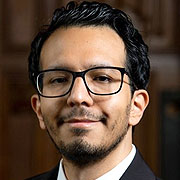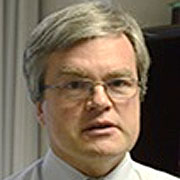On Friday, May 6, 2022, the Federal Reserve Bank of New York and Columbia University Center for Environmental Economics and Policy (CEEP) jointly hosted an in-person conference on environmental economics and policy, with speakers including New York Fed President John C. Williams and a keynote address by Ben Harris, Assistant Secretary for Economic Policy at the U.S. Department of Treasury.
Economists presented research on topics including how low-income communities are disproportionately impacted by climate risks, the unintended consequences of mandatory flood insurance, and how different neighborhoods react to flooding.
Opening Remarks
Session I
Keynote Address
Session II
May 6, 2022
9:15am - 6:00pm EDT
Federal Reserve Bank of New York
Auditorium
33 Liberty Street
New York, NY
In-person event only (no virtual component)
This event was open to the public and media. Registration for this in-person only event was available through the registration link. All remarks were on the record and the event was recorded. For media inquiries, please contact Ellen Simon at ellen.simon@ny.frb.org.
| 8:45am-9:15am | Continental Breakfast |
| 9:15am-9:30am | Opening Remarks John C. Williams, President and Chief Executive Officer of the Federal Reserve Bank of New York |
| SESSION 1: UNEQUAL EFFECTS OF CLIMATE CHANGE Moderator: Charles Taylor, Columbia University |
|
| 9:30am-10:15am | Surge of Inequality: How Different Neighborhoods React to Flooding Ana Varela Varela, Assistant Professor, University of Amsterdam |
| 10:15am-11:00am | Within City Disparate Temperature Effects of Climate Change Presenter: Clara Berestycki, Columbia University (Co-author: Wolfram Schlenker, Professor, Columbia University) |
| 11:00am-11:15am | Break |
| 11:15am-12:00pm | Unintended Consequences of "Mandatory" Flood Insurance Presenter: Kristian Blickle, Economist, Federal Reserve Bank of New York (Co-author: João Santos, Policy Leader for Microprudential Supervision, Federal Reserve Bank of New York) |
| 12:00pm-1:15pm | Lunch |
| 1:15pm-2:00pm | KEYNOTE ADDRESS Ben Harris, Assistant Secretary for Economic Policy, U.S. Department of Treasury |
| 2:00pm-2:30pm | Break |
| SESSION II: ECONOMIC AND FINANCIAL STABILITY UNDER A CHANGING CLIMATE Moderator: Tarikua Erda, Columbia University |
|
| 2:30pm-3:15pm | Climate Stress Testing Presenter: Hyeyoon Jung, Economist, Federal Reserve Bank of New York (Co-authors: Robert Engle, Professor, Stern School of Business, NYU; Richard Berner, Professor, Stern School of Business, NYU) |
| 3:15pm-4:00pm | Global Warming and Labor Market Reallocation Jose-Luis Cruz, Princeton University |
| 4:00pm-4:15pm | Break |
| 4:15pm-5:00pm | Mitigating Disaster Risks in the Age of Climate Change Presenter: Harrison Hong, Professor, Columbia University (Co-authors: Neng Wang, Professor, Columbia University; Jingiang Yang, Professor, Shanghai University of Finance and Economics) |
| 5:00pm-5:05pm | Closing Remarks João Santos, Policy Leader for Microprudential Supervision, Federal Reserve Bank of New York |
| 5:00pm-6:00pm | Reception |









Surge of Inequality: How Different Neighborhoods React to Flooding
Unintended Consequences of “Mandatory” Flood Insurance
Visit the New York Fed's page on Community Development.












